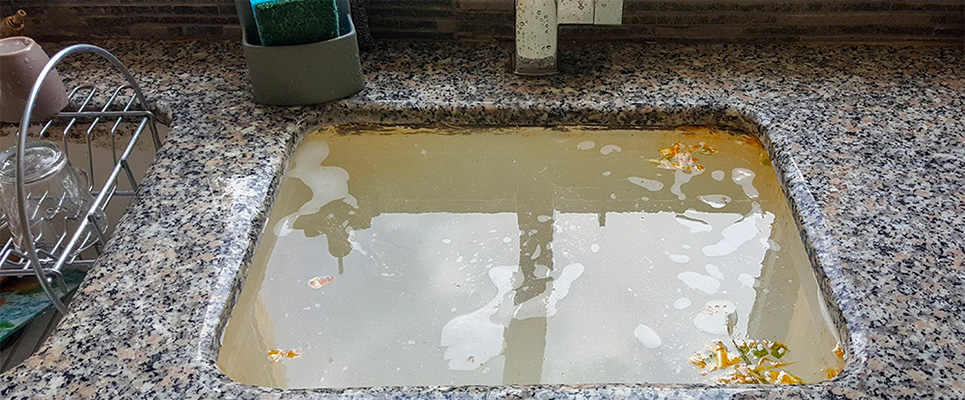Learning how to prevent clogged drains will go a long way toward keeping costly Denver plumbing issues at bay. It’s also a way to benefit your city by reducing the risk of flooding during weather events. What you’ll find is that there are three key areas to focus on to avoid most of the headaches.
In this article, we’ll touch on each one in more detail, but let’s just say kitchen, shower, and toilets to kill the suspense. Focus on these areas, and you’ll nip many things in the bud before they have a chance to become major issues. Here’s how.
Table of Contents
What are the Common Causes of Drain Clogs?
It’s important to be mindful of these common causes of drain clogs and take preventative measures to avoid them.
Regular maintenance, such as cleaning the drains and using drain covers to catch hair and debris, can help keep the pipes clear and prevent clogs from occurring.
When clogs happen, it’s advisable to seek professional assistance to properly remove the obstruction and prevent further damage to the plumbing system.
Common causes of drain clogs can vary, but some of the most common culprits include hair, grease, food scraps, and foreign objects.
Pro Tip: 9 Common Causes of Drain Clogs and How to Avoid Them
Hair can easily accumulate in shower drains and bathroom pipes, leading to blockages over time.
Grease can solidify and build up in kitchen drains, causing major clogs.
Food scraps, especially those high in starch or fiber, can get stuck in kitchen sink drains, obstructing water flow.
Foreign objects such as toys, jewelry, or excessive toilet paper can cause drain clogs.
To prevent drain clogs, it is important to be mindful of what goes down the drain. Using drain guards or strainers can help catch hair and large food particles. Avoid pouring grease or oil down the drain and dispose of them properly. Regularly cleaning and maintaining drains, such as using baking soda and vinegar solutions or professional drain cleaners, can also help prevent clogs.
Avoid FOG
FOG is the common acronym in utility circles for “fats, oils, and grease.” Never pour grease down the drain or any cooking oils. Along with other food items such as coffee grounds, FOG can clog up much of a city’s pipes and lead to a major residential common plumbing problem and requires plumbing repairs.
Drain cleaning, especially the kitchen drain or dishwasher drain, is more challenging FOG goes into the pipes without a buffer. Think about that whenever you pour grease out. Remove what you can into a disposable container, not the garbage disposal. Make an effort to run hot water for anything that might escape.
For what does escape, you might consider pouring a cup of vinegar down the drain. This can be a good cleansing substitute for the harsher chemicals found in specialty drain cleaners.

Use A Hair Catcher
Bathroom drains are highly susceptible to hair clogs, and it’s no wonder when you consider that the human body sheds around 100 strands of hair per day. This is avoidable provided you’re using a hair catcher of some kind to stop discarded hairs from ever slipping down the drain in the first place.
Any number of devices, from consumer products to creative repurposing, can get the job done. You might start by using a hand towel or a cloth of some kind over the drain to create a filter.
Brush It Out
Another way to prevent a clogged shower drain is to brush your hair ahead of time. The act of brushing will pull much of the dead and discarded hair away from the head.
That means it collects in your hairbrush instead of waiting until you’re in the shower to fall out. Additionally, soap scum has less to cling to when you’re rinsing off, thus keeping the dead hair and soap from coagulating in your drains.
Careful With Flushing
Take the “flushable” and “non-flushable” labels seriously. Keep paper towels far away from your toilets, and try to keep discarded items to just regular bath tissue. This is biodegradable and much easier on your drains than anything treated with a chemical or cleansing agent.
Make Use Of Trash Bags
Throw discarded food into a bag instead of depending on your garbage disposal to take care of everything for you. One tip we’re particularly fond of for reducing FOG and odors is this.
Tuck a sheet of aluminum foil into your drain, making a cup with it (careful not to poke holes). Use it as a mini-trashbag. Fill it, enclose, toss it into the disposal bin.
Your sink is not a food dumpster. The less you use it as such, the less you’ll need your Denver drain cleaning service experts to save the day.
Free Download: 13 Plumbing Tips

Improve Your Home By Learning How To Prevent Drains From Clogging
Once you learn how to prevent drains from clogging, you can rest easy knowing that your plumbing system will last that much longer. You’ll also be able to avoid unflattering smells and backups.
Do you have questions or need help with your drains or drain cleaning? Call JD’s Plumbing, Heating & Air Conditioning today to schedule a consultation.


